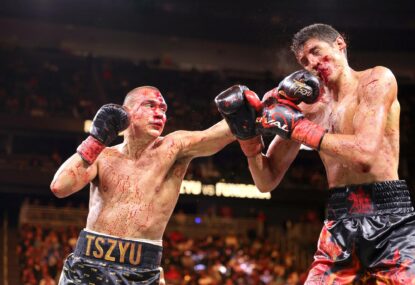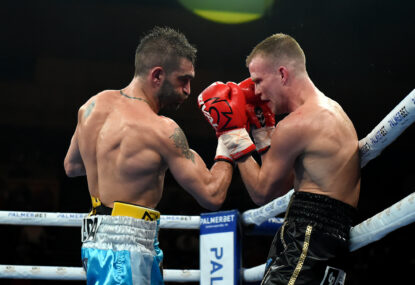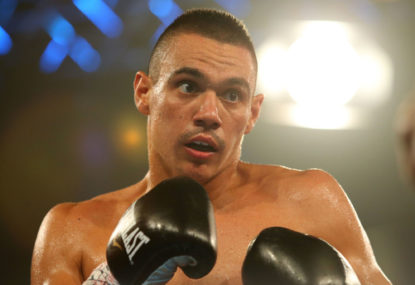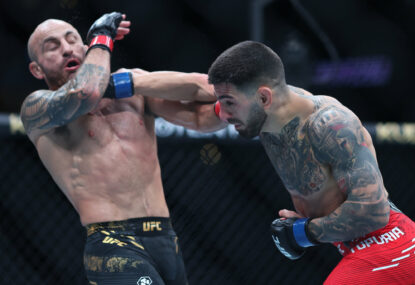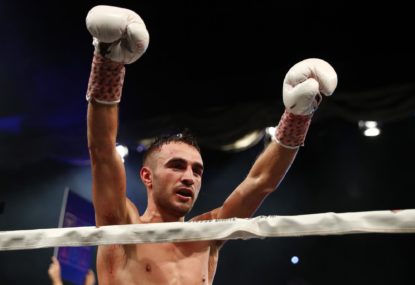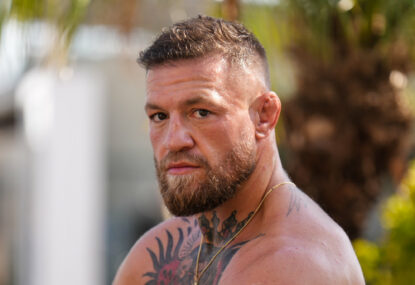It has been said that all of life is in boxing. From dark, to light, to everything in between.
Few fighters have embodied this more than Tyson Fury, the “retired” British heavyweight. I put the word “retired” in inverted commas because I, alongside everyone else who has even a passing interest in boxing, assumes that he will come back presumably for the winner of the Anthony Joshua–Oleksandr Usyk rematch.
But in the unlikely event that he is indeed done, I think an examination of his career is in order, with a particular focus on his in and out of ring legacy.
In the ring it is unequivocal to me that he is the best heavyweight in the world and the best British heavyweight since Lennox Lewis.
His record is without blemish, though I would argue that his only truly great wins are those against a 39-year-old Wladimir Klitschko and his two wins against Deontay Wilder – a flawed but powerful fighter.
The measure of his in-ring greatness is less about the names on his résumé and more about the way that he has changed his style. He is a rare amorphous fighter who is a jack of two trades and a master of both – think Bryan Cranston in Malcolm in the Middle and then Breaking Bad.
He started his career as the rarest of beasts – a feather fisted heavyweight. He slapped in his shots and moved supernaturally quickly for a big man, displaying impressive evasive skills for a man of his size, with both his feet and head.
However, early in his career he was seldom in a classic fight before that first Wilder bout. The first Wilder fight appeared to be, alongside going life and death with the little-known Otto Wallin, the impetus for a dramatic change in style.
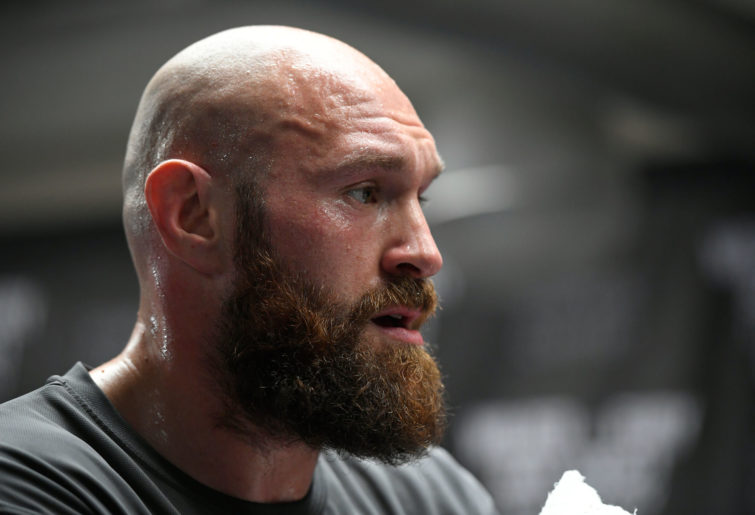
Tyson Fury (Photo by John McCoy/Getty Images)
He moved away from his long-time trainer Ben Davison and to SugarHill Steward, a disciple and nephew of the greatest trainer of power punchers in history, Emmanual Steward. Under the stewardship of Steward, Fury became, in his words, ‘an 18-wheeler’. He utilised every kilogram of his massive 6-foot-9-inch frame and moved forward aggressively, effectively utilising that weight to lean on opponents and sap the strength from their legs.
For the first time he was sitting down on his punches but was still good enough defensively to not get hurt too badly in the process, especially while he was sitting in the pocket leaning on his counterpart.
This change, in my view, has put Fury into that conversation with the greatest heavyweights ever. He looks extremely difficult to beat and I would pick him against both Usyk and Joshua with relative ease if he does come out of “retirement” to unify the heavyweight division.
I note also that the WBC has essentially said he can stay retired for a year before they consider stripping his belt. Knowing boxing, he will probably fight the Usyk-Joshua winner in 18 months and not for unification.
My well-earned cynicism of the sport of boxing be damned, the in-ring greatness of Fury is obvious. The true light and dark of Fury is out of the ring.
To start with the light, we must acknowledge that Fury has been an extraordinary advocate for mental health awareness. His openness about his struggles with addiction and depression have been remarkable, especially coming from a boxer from the regularly marginalised Traveller community.
When the most eyeballs were on him, Fury was at his most effective as a mental health spokesperson.
His first fight with Wilder was, up until that point, his biggest. He was relatively unknown when he outpointed Klitschko in one of the least compelling heavyweight title matchups that I can remember. After that win, he spiralled mentally. As a result of this spiral, plain to see in his massive weight gain, his return was an extraordinary moment for many who viewed his comeback as inspirational.
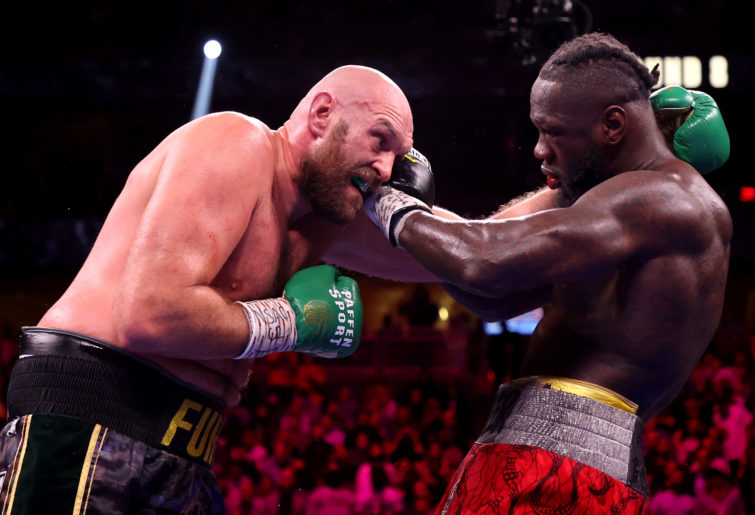
Tyson Fury and Deontay Wilder exchange punches during their WBC Heavyweight Championship title fight. (Photo by Al Bello/Getty Images)
In the fight, Fury was impressive in his movement, albeit he was still in his slap in the shots mode. The most memorable moment though was when he rose from an atomic Deontay Wilder right hand in the 12th and final round that looked like it knocked him out. The way he hit the ring looked like yet another knockout on Wilder’s burgeoning highlight reel. After getting up off the canvas, he clearly won the rest of the round and was remarkably clear-eyed.
After the fight, he spoke passionately about how he wanted to be a spokesperson for those with mental health issues. He dedicated the fight to those people. After the fight, he implored anyone suffering from mental health issues that, if he could come back, anyone could.
It’s an extraordinary story and I do not begrudge his effective monetisation and salesmanship of his story. It is a story that should be out there and should be well known.
Beyond that, Fury is a character of the highest order. Perhaps the best talker since Muhammad Ali in the heavyweight decision, Fury is an objectively funny man. He is witty at a time fighters regularly resort to racial stereotypes when they are selling fights.
He is also a showman with his walkouts in the ring becoming the stuff of legend at this point. For Wilder II, he was carried out wearing a crown, masquerading as a king. For Wilder III, he came out as a Spartan, replete with the helmet. For his Las Vegas debu,t he took heed from Apollo Creed, wearing all-American shorts and a top hat, ‘Living in America’ blaring through the speakers.
Fury is a suicidal comedian who makes his living knocking people out. A fat man, in his own words, who is one of the most dominant athletes on planet earth. These are rare sentences, yet all of it is or has been true of Tyson Fury. He personifies what is so varied about people. He gives us permission not to judge someone only by their health issues, but to take a look at the whole person.
Even his living situation is abnormal and speaks to the inability to put Fury in a box. He is regularly dressed in Versace robes and expensive clothing and talks, usually jokingly, about his Rolls Royce. And yet, he lives a quiet life in Morecambe Bay.
He drives a second-hand Pajero according to him, and he films himself on Instagram taking out his bins, often talking about how he doesn’t need servants. He’s just a man who has made a good living, and doesn’t want to go broke spending it all. He says all that he needs is a humble life full of family and fighting.
These contradictions make him an enthralling figure and something of an icon in the modern sporting landscape.
But the dark is just as compelling.
Prior to the Dillian Whyte fight, you often saw Tyson Fury walk into the ring and celebrate post-victory wearing shirts and hats with the logo ‘MTK Global’. He was the most famous face of a company that popped up essentially out of nowhere to be touted by one of the most famous athletes on earth.
When Fury announced on his Instagram the fight with Anthony Joshua, eventually nixed by a successful Deontay Wilder arbitration, he thanked ‘Dan’ on multiple occasions. He said that the fight ‘literally’ could not have happened without the help of ‘Dan’.
Tyson Fury is notionally promoted by Frank Warren and Queensberry Promotions in the UK and Bob Arum and Top Rank in the United States.
He is “advised” by Daniel Kinahan.
One of the key issues with boxing is if you do not designate yourself as either a manager or promoter (or both with a big thank you for double-murderer Don King for blurring that line) there is no barrier for entry – if there is even a barrier for entry at all. As a result, all types of nefarious figures can insert themselves into the lives of fighters.
Kinahan is one such nefarious figure.
In order to understand who Daniel Kinahan is, only one anecdote is required. On February 5, 2016, there was a weigh-in for the WBO European Lightweight Title bout between Jamie Kavanagh and Antonio Joao Bento in Dublin. Kinahan was an advisor to Kavanagh.
Gunfire rang out at the weigh-in. It was an organised criminal attack that resulted in the killing of David Byrne, a key lieutenant in Daniel Kinahan’s crime family. The bout was cancelled.
It was originally meant to be an assassination of Kinahan but he caught wind of the plan and was not present at the weigh-in. It was retaliation for one of the 18 murders prosecuted in the course of the extraordinarily bloody Hutch-Kinahan gangland war.
At present, Kinahan lives in Dubai – barred from entering the United States or the United Kingdom because of his placement on the DEA and FBI list of “Narco terrorists” – heading what is commonly known as the Kinahan Cartel. He is one of the biggest drug dealers on earth, and one of the most wanted men in the world.
He and his associates have been treated by the United States in a similar way to Vladimir Putin, with sanctions levied against Kinahan and his associates seeking to freeze his assets and put a significant financial squeeze on him.
He is also one of Tyson Fury’s key advisers and perhaps the most powerful person in the boxing world.
How do we reconcile this for Fury? He has legitimised Kinahan in a way that has led to each of the president of the WBC, Bob Arum, Frank Warren and Eddie Hearn to deal with Kinahan directly and, in some cases, praise one of the world’s most notorious criminals.
Beyond that, how much drug-induced despair has Kinahan brought to the world? How can we trust what Tyson Fury says about the value of sobriety when he lines the pockets of a global drug dealer?
Shady figures are not new to boxing. Al Haymon is one of the most powerful men in the sport and promoted Floyd Mayweather during his showtime years. There are two photos of him on the internet.
That is to say nothing of Don King, a convicted killer who ran boxing for two decades between the ’70s and ’90s.
And these examples are from the last 50 years. If you were to go back further, you would see that boxing was essentially run by organised crime for most of the 20th century.
But with Fury it is different. He preaches health and sobriety. He should be held to a higher standard when it comes to these issues.
How can we trust his sobriety? After the first Wilder fight, he talked frequently about how he was now sober, living a sober life, working out twice a day and just living in a routine that left no time for gallivanting. But that changed after Wilder II where he said he was going to go out and drink to excess, and laughed about it. After Wilder III, videos came out of Fury drinking and partying.
Only last week did a video emerge of Fury in France, obviously inebriated, trying to get into a taxi. The taxi drives off, presumably seeing the state that Fury was in and refusing the fare, and Fury stumbles a kick out at the cab.
I do not begrudge him these things, and it is not unheard of for people in recovery to simply abandon drugs but continue drinking alcohol. Anthony Bourdain, another tortured soul, did the same thing and seemed to keep his addiction issues in check. But with Fury, again, it is different.
He is a preacher of sobriety, and yet he is not sober.
The final element of the darkness that exists for Fury is connected with his ardent religious beliefs. This religion, he says, keeps him living that humble life in Morecambe Bay. Keeps him now on the straight narrow, which appears in practice to be neither as straight nor as narrow as he seems to profess publicly, and keeps him giving generously to charity.
It also has led to him taking some damaging positions on homosexuality and other LGBTQ issues. He has likened homosexuality to paedophilia publicly and has denounced abortion on a relatively regular basis, at least prior to his comeback. These positions also do not accord with his significant voice in the mental health space.
He regularly displays an enormous amount of empathy for people with mental health issues, just not if those mental health issues are a result of abuse and trauma received because of one’s sexuality.
Fury is a man full of contradictions.
The light of Fury is as bright as exists in the sporting world, but the dark is as black as the ace of spades.































































































